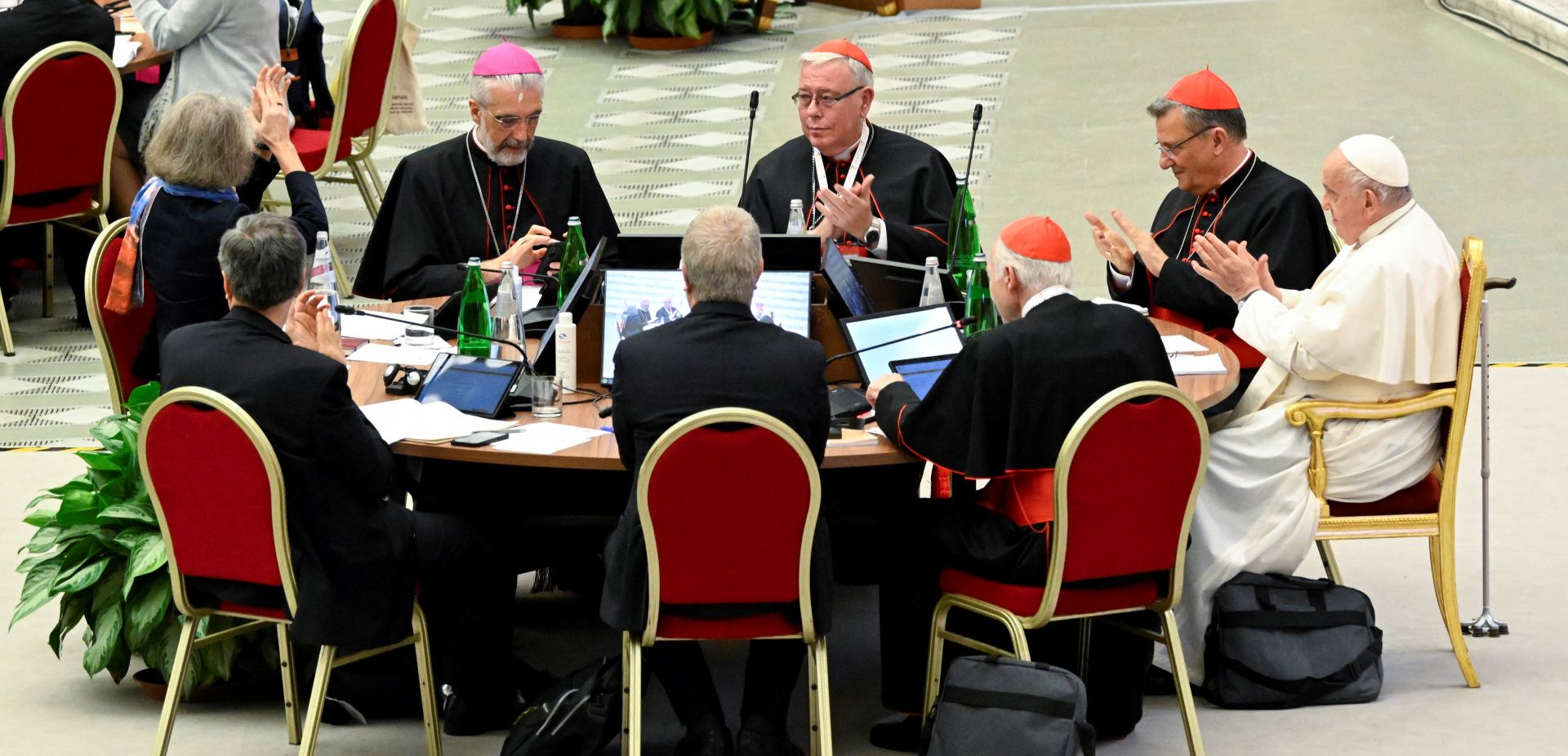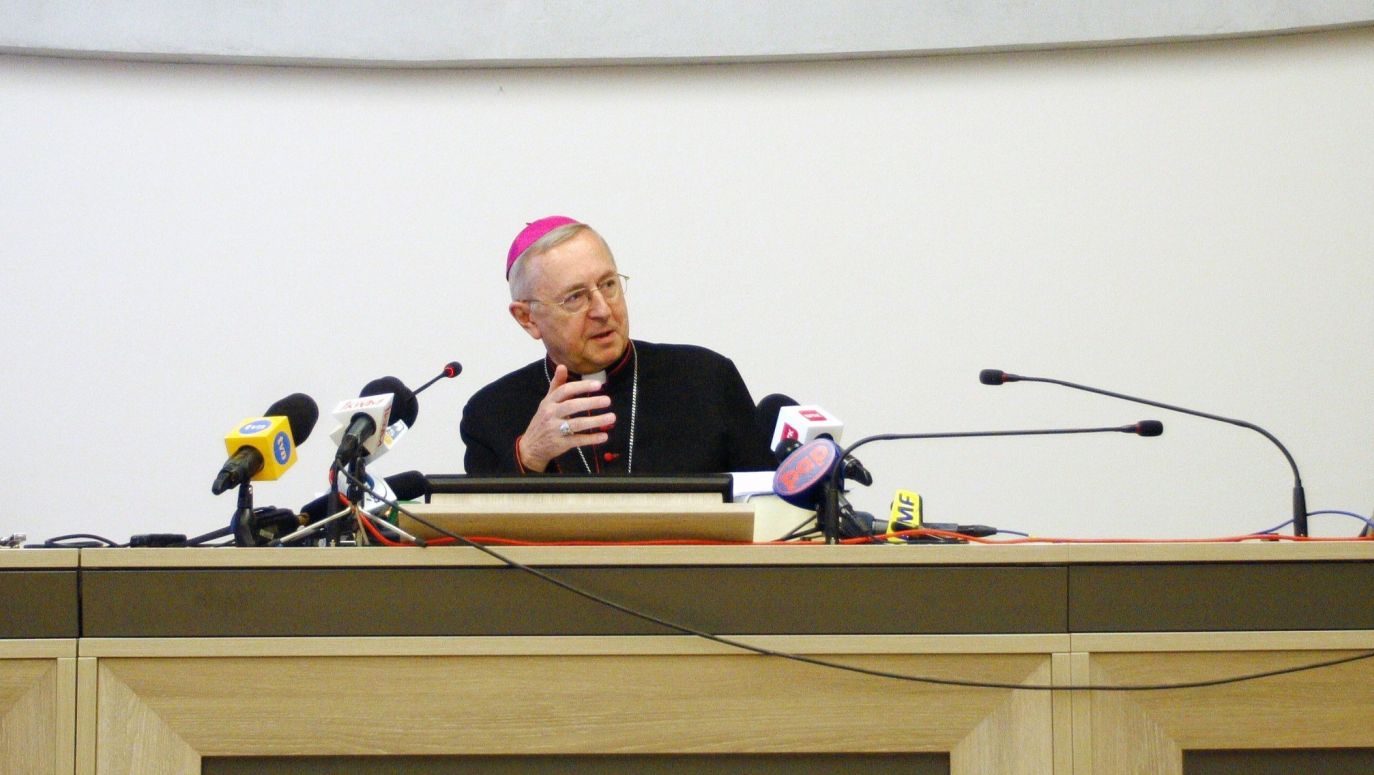There has come to an end this year’s (as there will be next year’s too, therefore nothing definitive has happened) synodal session of bishops and lay people summoned by Pope Francis already two years ago. During this period parishes, orders, chaplaincies, finally dioceses and large national communities in their entirety debated – or, better to say: should have been debated, but some were too lazy to do so – and discussed: how to talk about the Church within the Church? How to listen to others and let oneself be listened to? Who should be included in the talks – that’s an allusion to the already famous “inclusivity” – and who should be favoured: the poor, migrants, women, the sexually abused or perhaps some minorities, including sexual ones?
Misunderstandings, over-interpretation, ambiguity and mistrust reigned. The situation wasn’t helped by Pope Francis himself with his extraordinary and even growing talent for lapsūs linguae, incompletely expressed thoughts, imprecise opinions, vague juxtapositions of facts and opinions.
In addition, much has happened in the world over the past two years, including within the Catholic Church – may the German “Synodal Way/Path” be an example here. So many new situations have arisen, so many shocks have occurred – including external ones, since the Russian invasion of Ukraine and a real invasion of migrants into Europe, and now Hamas’s attack on Israel have also affected the Church – that the Synod on Synodality has offered many opportunities to take up new themes, to reflect on subsequent questions and situations. Even before the proceedings began a month ago it was known that some bishops – in Poland it was Archbishbop Gądecki – did not hide their doubts, while others – like Abp. Adrian Galbas, just appointed Apostolic Administrator of the Sosnowiec diocese by Francis – shared their enthusiasm. But mayhap this is the right way to seek mutual agreement and understanding?
 SIGN UP TO OUR PAGE
SIGN UP TO OUR PAGE

Let’s go back to the madness – I don’t hesitate to use this word – of the German proposal that the “Synodal Way”, which has been devised over these two years, should become an institution equal to the German Episcopate, that it should make decisions that are binding for the Church, that it should introduce novelties – discussed and voted on as in a parliament. Among these there were supposed to be: women’s priesthood, holly sacraments for homosexual couples, participation of the laity in liturgical situations hitherto reserved for the clergy, in a word – “a frenzy”, as a certain elderly man commented on the press reports.
But it was not a “frenzy” and it did not end at the national level, it also appeared at the pre-synodal meeting of European representatives held in Prague in February of this year – and then, in a certain sense, made its way to the regular synodal sessions in Rome. In ”a certain sense”, because there were reservations from the Vatican that the German “Synodal Way” was not a canonical model and could not be accepted. But it was never rejected outright, it was never condemned.

 SIGN UP TO OUR PAGE
SIGN UP TO OUR PAGE
 Let’s go back to the madness – I don’t hesitate to use this word – of the German proposal that the “Synodal Way”, which has been devised over these two years, should become an institution equal to the German Episcopate, that it should make decisions that are binding for the Church, that it should introduce novelties – discussed and voted on as in a parliament. Among these there were supposed to be: women’s priesthood, holly sacraments for homosexual couples, participation of the laity in liturgical situations hitherto reserved for the clergy, in a word – “a frenzy”, as a certain elderly man commented on the press reports.
Let’s go back to the madness – I don’t hesitate to use this word – of the German proposal that the “Synodal Way”, which has been devised over these two years, should become an institution equal to the German Episcopate, that it should make decisions that are binding for the Church, that it should introduce novelties – discussed and voted on as in a parliament. Among these there were supposed to be: women’s priesthood, holly sacraments for homosexual couples, participation of the laity in liturgical situations hitherto reserved for the clergy, in a word – “a frenzy”, as a certain elderly man commented on the press reports.




